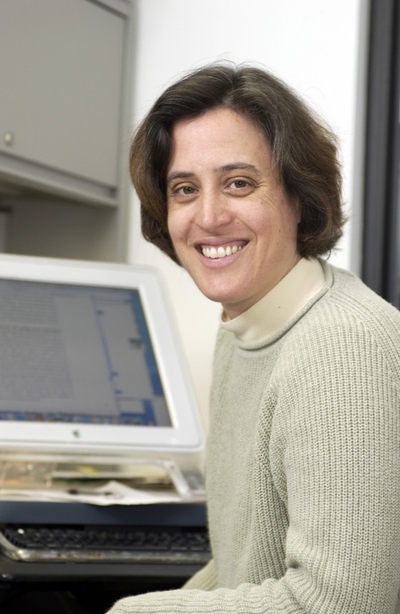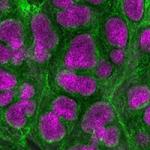
Research Topics
Cell Cycle Regulation in Oogenesis
The long-term goal of our laboratory is to understand how the cell-cycle events of meiosis are coordinated with the developmental and metabolic events of gametogenesis. Chromosome mis-segregation during female meiosis is the leading cause of miscarriages and birth defects in humans. Recent evidence suggests that many meiotic errors occur downstream of defects in oocyte growth and/or the hormonal signaling pathways that drive differentiation of the oocyte. Thus, an understanding of how meiotic progression and gamete differentiation are coordinated during oogenesis is essential to studies in both reproductive biology and medicine. We use the genetically tractable model organism Drosophila melanogaster to examine how meiotic progression is both coordinated with and instructed by the developmental and metabolic program of the egg.
In mammals, studies on the early stages of oogenesis face serious technical challenges in that entry into the meiotic cycle, meiotic recombination, and the initiation of the highly conserved prophase I arrest all occur during embryogenesis. In contrast, in Drosophila these critical events of early oogenesis all take place continuously within the adult female. Easy access to the early stages of oogenesis, coupled with the available genetic and molecular genetic tools, makes Drosophila an excellent model for studies on meiotic progression and oocyte development.
To understand the regulatory inputs that control early meiotic progression, we are working to determine how the oocyte initiates and then maintains the meiotic cycle within the challenging environment of the ovarian cyst. Our studies focus on questions that are relevant to the development of all animal oocytes. What strategies does the oocyte use to protect itself from inappropriate DNA replication? How does the oocyte inhibit mitotic activity before meiotic maturation and the full growth and development of the egg? How does cell-cycle status within the ovarian cyst influence the differentiation of the oocyte? How do oocytes protect themselves from stress during the prolonged prophase I meiotic arrest? To answer these questions, we have undertaken studies to determine the basic cell-cycle and metabolic program of the developing ovarian cyst. Additionally, we are using oogenesis as a model to better understand how metabolism is regulated in the context of a multicellular animal. Our current studies focus on understanding the GATOR-Rag GTPase-TORC1 signaling axis.
Biography
Dr. Mary Lilly received her Ph.D. in Biology from Yale University in 1986. In 1992 she joined the laboratory of Dr. Allan Spradling at the Carnegie Institution of Washington, Department of Embryology, for her postdoctoral training. Dr. Lilly was recruited to the Cell Biology and Metabolism Branch of NICHD in 1998. Currently, she is the head of the Section on Gamete Development and the Deputy Associate Scientific Director of the Neurosciences and Cellular and Structural Biology Division.
Selected Publications
- Yang S, Ting CY, Lilly MA. The GATOR2 complex maintains lysosomal-autophagic function by inhibiting the protein degradation of MiT/TFEs. Mol Cell. 2024;84(4):727-743.e8.
- Zhang Y, Ting CY, Yang S, Reich J, Fru K, Lilly MA. Wdr59 promotes or inhibits TORC1 activity depending on cellular context. Proc Natl Acad Sci U S A. 2023;120(1):e2212330120.
- Yang S, Zhang Y, Ting CY, Bettedi L, Kim K, Ghaniam E, Lilly MA. The Rag GTPase Regulates the Dynamic Behavior of TSC Downstream of Both Amino Acid and Growth Factor Restriction. Dev Cell. 2020;55(3):272-288.e5.
- Wei Y, Bettedi L, Ting CY, Kim K, Zhang Y, Cai J, Lilly MA. The GATOR complex regulates an essential response to meiotic double-stranded breaks in Drosophila. Elife. 2019;8.
- Cai W, Wei Y, Jarnik M, Reich J, Lilly MA. The GATOR2 Component Wdr24 Regulates TORC1 Activity and Lysosome Function. PLoS Genet. 2016;12(5):e1006036.
Related Scientific Focus Areas




Molecular Biology and Biochemistry
View additional Principal Investigators in Molecular Biology and Biochemistry

This page was last updated on Friday, January 16, 2026